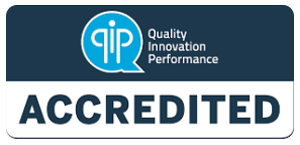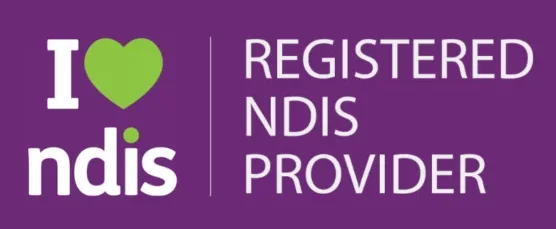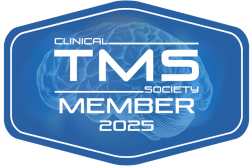FAQ
MeRT stands for Magnetic E (for EEG and EKG) Resonance Treatment. MeRT℠ is a non-invasive, non-pharmaceutical and personalized form of neuromodulation. MeRT℠ combines; repetitive Transcranial Magnetic Stimulation (rTMS), quantitative Electroencephalogram (qEEG) and Electrocardiogram (ECG). to identify, measure, analyze and design personalized therapy towards improving synchrony and an effective communication in brain activity.
The patient’s qEEG and ECG are analyzed to ascertain the brain’s pattern of function, detect brain activity, and determine its state of neural synchronization. Using this data, a therapy protocol is developed for each individual and magnetic stimulation is used to optimize brain pathways and communication.
Definitions
rTMS (repetitive Transcranial Magnetic Stimulation): a non-invasive therapy that is utilises pulsed magnetic fields to change neural activity.
EEG (Electroencephalogram):a non-invasive procedure that records the electrical activity of the brain.
ECG (Electrocardiogram): a non-invasive procedure that records the electrical activity of the heart.
What sets MeRT℠ apart from other similar technologies is the highly individualized approach utilizing the patient’s own brain waves to make a treatment plan, while other similar technologies (rTMS) have a predetermined treatment protocol based solely on the diagnosis, which is a one size fits’ all approach.
This is a cutting edge treatment protocol which combines technologies of repetitive transcranial magnetic stimulation (rTMS, an FDA cleared therapy), Quantitative Electroencephalogram (qEEG), and Electrocardiogram (ECG/EKG) to analyze and formulate treatments that are tailored for each individual’s unique brain pattern.
Most rTMS treatments are used to deliver stimulation to one area of the brain at a fixed frequency for all patients. Our MeRT℠ approach is highly individualized as to frequency and location based on an initial thorough testing and evaluation. This customized, scientific approach is unique to each patient.
During your cortical MeRT℠ therapy appointment, a magnetic coil will be placed on a targeted area of the brain to deliver magnetic pulses. The session goes for approximately 45 minutes with stimulation train delivered for 5 seconds with a 45 second break in between each train.
While results are individual in nature and depend on the presenting symptoms, common observed benefits of MeRT℠ therapy include:
- Improved sleep quality and duration
- Increased concentration and focus
- Improvement in mood and emotional stability
- Reduction in stress symptoms
- Reduction of pain
- Increased attention span
- Improved clarity of thought
- Increased ability to adapt to change
- Increased sociability
- Improved self-confidence and self-esteem
From our current data using the MeRT℠ approach, side effects are few and generally mild. The most commonly reported side effect is a mild tension headache at the site of stimulation, which can last 1-2 hours and responds well to over-the-counter analgesics.
Other possible side effects are hyperactivity, increased agitation, or euphoria.
With brain stimulation there is also a risk of seizures; however the risk is minimal with MeRT℠ therapy. At the Brain Treatment Center we also limit the intensity of stimulation to further reduce any possible risk of seizure activity.
Every individual responds differently to the therapy. This is why we undergo a 2-week assessment period first. We have found that in our assessment period we are able to determine whether or not the person would be a candidate for MeRT℠ therapy.
Results can vary to each individual. In general, the longer the length of MeRT℠ therapy, the longer the changes remain, especially if receiving MeRT℠ therapy for greater than one month.
There are absolute and relative contraindications for MeRT℠ therapy.
Absolute contraindications for cortical MeRT℠ treatment:
- Pacemaker
- Defibrillator
- Vagal Nerve Stimulator
- VP Shunt/ Magnetic intracranial shunts
- Deep Brain Stimulator
- Epidural Cortical stimulator
- Steel shunts/stentsCranial metal fragments (i.e. shrapnel, excluding titanium)
- Cochlear implant
- Aneurysm clips, coils, pipelines flow diversion
- Pregnant or breast feeding
- Primary brain cancer / metastatic legions in brain (unless palliative care)
- Magnetic dental implants
- Implanted cardio-verter defibrillators (ICD)
- Ocular implants
Relative contraindications (requiring closer protocol attention, but not disqualifying someone from receiving MeRT℠ therapy):
- History of Seizure or seizure disorder
- Titanium shunts/stents
- Spinal Cord Stimulator
- Hearing aids
- Ferrous cortical implants
- Magnetic ink tattoo
- Bipolar Disorder Type I/II
- Baha Implant
Absolute Contraindications for Peripheral MeRT℠ (This include ALL cortical MeRT℠ therapy contraindications, plus those listed below)
- Steel screws or hardware (contraindicated for placement over ferrous material)
- Any implanted electrical device
- Urogenital implants
- Ferrous implants
- IVC Filters
- Pain pumps



